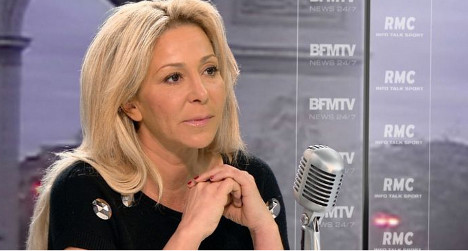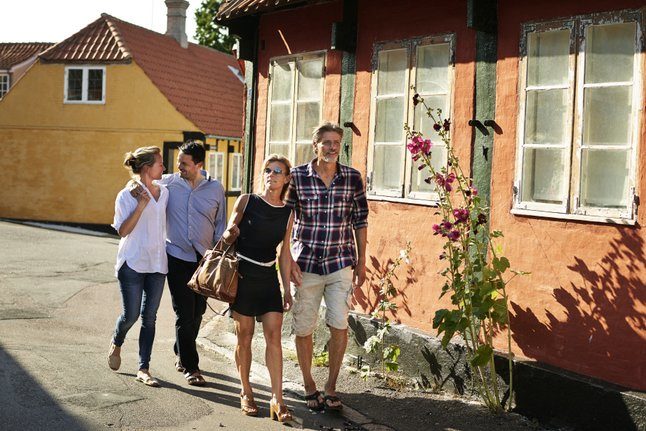The French public want more repression and they would rather see jihadists locked up rather than reintegrated into society.
That’s according to the results of a major opinion poll released on Wednesday that has tried to gauge the mood of France three weeks after it was rocked by a series of shootings by homegrown terrorists.
The survey carried out by Le Monde and Europe 1 revealed that 90 percent of the public want tighter security, almost all (95%) want tougher measures for inmates who preach extremist ideals and nine out ten want to see jihadists stripped of their French nationality.
This perhaps should not come as a surprise with the country’s Justice Minister Christiane Taubira telling The Local and other foreign reporters on Tuesday that French culture demands that “those who cross the line are punished. Full stop.”
Her view was backed up by the poll results which showed the vast majority percent of people want the justice system, the police, and the prisons to play the main role in tackling extremist Islamists, rather than the countrey's politicians.
The public would presumably be happy with the kind of sentence that saw a jihadist jailed for seven years after only spending 12 days in Syria. France has cases open against another 110 returning fighters.
Out on the streets of Paris, many people The Local spoke to on Wednesday wanted to see courts get tough on extremists and presumably
“We have to make them suffer,” Rachid, a café manager said.
"Today prisons are like a holiday camp. Inmates should not be able to have any kind of contact with the outside world,” he added.
Pierre Gauthier, aged 51 said: “We have to extend their sentences and establish prison terms without minimum sentences.”
Philippe Chan, a sandwich shop owner said: “Stripping them of their nationality is completely appropriate for me”.
While France gets tough on jihadists an entirely different approach is being followed in Denmark, a country which, it’s worth pointing out, isn’t recovering its nerve after a shocking terrorist attack.
This week the country’s parliament near unanimously voted through the country’s new anti-radicalization plan, pledging to spend €8m on various projects to reintegrate those who had been persuaded by jihad.
“If someone does go down that road, we must do everything we can to ensure that they come out again,” said Justice Minister Mette Frederiksen.

(Danish Justice Minister Mette Frederiksen. Photo: Jens Astrup/Scanpix)
While Denmark has only around a tenth of the number of nationals fighting jihad in the Middle East as France does, it wants to make sure extremists are given every chance at reintegrating into society, although it does also promise tough measures for those "who continue down the wrong path".
One of the measures announced in the country’s anti-jihadist strategy last year was a new national exit centre to support those looking to leave the path of extremism.
At the moment nothing similar is in the pipeline in France.
One expert told The Local that France's approach remains too one-dimensional and too tied to the law.
“In France we have an essentially judicial approach. We need a more psycho-social approach,” Séverine Labat, an expert on Islamism at the CNRS research organisation, told The Local.
But with the public intent on seeing more security and tougher punishments a change in approach does not look likely anytime soon.
Although voices in France calling for rehabilitation rather than just repression are starting to be heard.
"These people should undergo 'de-radicalisation'," Pierre N'Gahane, the French official in charge of deradicalisation nationally, told Reuters. "But the question (of how), is still on table. We make no secret of that."
France does have a “de-radicalisation cell”, although it's only a pilot project that was set up in October last year with the support of the Ministry of the Interior.

(Sonia Imloul. Photo: Screengrab BFMTV)
The woman in charge of the team of psychologists and educators is Sonia Imloul (pictured above), who was chosen because of her years of experience working with disadvantaged and disillusioned youths in the poorer Paris suburbs.
Since the Paris terror attacks Imloul has appeared regularly on French media to put forward her alternative way to battling against radicalisation.
“De-radicalizing an individual is by no means an exact science. There is no quick fix. But with this team we are moving away from a uniquely police approach, in favour of a more multidisciplinary method and especially cultural, which is new in France," she told the Nouvel Obs website.
And out on the streets there is support for her approach.
“Putting them in prison is going to worsen the situation,” a student named Ludmila told The Local.
Another woman named Christine said: "We have to get to the root of problems by starting with children in schools."
And there is support among the government with Justice Minister Taubira saying: “I think to protect people in the long term…. we’ll need to 'disindoctrinate' the terrorists."
But the minister added the caveat: "Right now France is not ready to hear about programs of de-radicalization."


 Please whitelist us to continue reading.
Please whitelist us to continue reading.